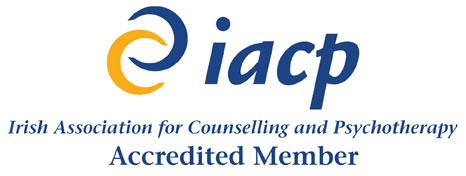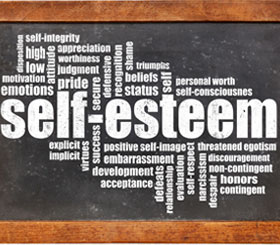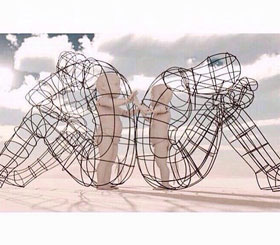
Welcome
When you cannot see the light, I will sit with you in the dark.

Sometimes in life we may feel overwhelmed by our emotions for a number of different reasons. Family and friends can be a great support at times like this but from time to time we need someone to talk to who is not directly involved.

“If I can provide a certain type of relationship, the other person will discover within himself the capicity to use the relationship for growth and change and personal development will occur.”
Carl Rogers.
About Me
Thank you for visiting my website. My name is Sharon Sheridan and I am owner of Aster Counselling and Psychotherapy in Leixlip. I have worked in the area of Mental Health Management for over twenty years. I have been professionally trained and am fully qualified in Counselling and Psychotherapy using an Integrative approach. This approach comes from the belief that there is no one particular therapy that fits all people. As people, we are all different in our wants and needs and an Integrative approach allows me to tailor the counselling to suit your particular situation drawing from a number of theories, methods and ideas. I firmly believe that each person has within them all of the answers and resources to help resolve the difficulties they are going through. By working together in the therapeutic relationship, clients are given the opportunity to explore what it is that is causing them difficulty.
I am passionate about the work I do and I believe that each one of us has the right to be happy and experience psychological freedom. Going for Counselling takes courage and you have already taken the first step. I look forward to meeting with you and helping you as you begin your journey. I hope that my website has shone a light on any questions you may have but if you need any more information please feel free to pick up the phone or email me. My details can be found in the contact section.
My qualifications include:
- BA Degree in Integrative Counselling and Psychotherapy.
- Diploma in Integrative Counselling and Psychotherapy.
- Diploma in Social Studies.
- Certificate in Adult Guidance.
I am also trained in ASIST (Applied Suicide Intervention Skills Training).
I am a fully accredited member of the Irish Association for Counselling and Psychotherapy (IACP) and adhere to their code of ethics.

How I Work
I offer one-to-one Counselling and Psychotherapy to adults aged 18+.
Finding a therapist you connect with is an integral part of the therapeutic and healing process. I feel that it is really important that you feel comfortable with me. So how do you know if we are a good fit?
I understand that when you first make contact, it is probably a huge and possibly daunting choice for you and I will do my very best to put you at ease. I will get some basic information from you. If I feel I can help you, we will both agree a suitable date and time for your first session. If I feel that I am not the best person to help with your particular needs, I will try to refer you to the appropriate service. Your session will last approximately one hour and will give us the opportunity to get to know one another and this is really important. You will also have the chance to ask me any questions you may have. I will get to know your story in a little more detail, and we can discuss what you feel brought you to want to begin counselling. From there, I will explain to you how your counselling might look going forward. We will also discuss confidentiality and the limits in the session, and I will give you information on my code of ethics. This is your time each week to talk about whatever it is that is causing you difficulty. After six sessions I will carry out a review with you to see how you feel your therapy is working for you as it is imperative that you are happy with your progress.
Fee structure:
- The fee is €70.00 per session.
- Please note that I require 24 hours’ notice of cancellation or the full fee of €70.00 will apply.


I provide a safe, non-judgemental and confidential Counselling and Psychotherapy service in the Leixlip/ North Kildare and surrounding areas. I can help you to explore thoughts and feelings that can sometimes be difficult or painful to look at. These issues and worries may be impacting on your quality of life.
What is Counselling?
Counselling, sometimes called ‘talk therapy’, is a conversation or series of conversations between a counsellor and client. Counselling usually focuses on a specific problem or difficulty in your life and can help to address or solve this issue. Counselling is usually a more shorter prossess than Psychotherapy and focuses on present day difficulties rather than the role of past experiences.

Why Counselling?
I provide a safe, non-judgemental and confidential Counselling and Psychotherapy service in the Leixlip/ North Kildare and surrounding areas. I can help you to explore thoughts and feelings that can sometimes be difficult or painful to look at. These issues and worries may be impacting on your quality of life.

Anxiety
Anxiety can be quite debilitating in a person’s life due to constant feelings of fear. Along with this, people can also experience panic attacks. I can help you to understand and deal with what it is that is causing your anxiety, fear or panic with effective strategies and an understanding of what is really going on for you. This can help you take back the control that client’s have often described to me as having lost.

Stress
Stress can become a viscious cycle. Prolonged or intense stress can lead to difficulties that can impact on relationships and work. People can feel irritable, have difficulty sleeping, lack motivation, have a loss of libido and find themselves withdrawing from social situations. Stress can have physical implications too, such as headaches, muscle pain, fatigue and high blood pressure. We can work together to help identify the cause of your stress, learn tools to help change the automatic thought process and the way you react to stressful situations, recognising blindspots, inner conflicts and unresolved trauma to help you cope with future stressors.

Self-esteem issues
Self-esteem is the degree to which we feel confident, consider ourselves valuable and respect ourselves and our boundaries. Overall, this affects our wellbeing. Low self esteem can be associated with self-doubt, self-criticism, social isolation and supressed anger and shame. Common features of low self-esteem can be negative self-talk, comparing self to others and negative opinions of self. Most of the time, self-esteem is learned in childhood and can be damaged developmentaly by criticism or abuse from others. In adulthood, a well-developed self-esteem can be challenged by sudden life changes such as the loss of a job or the ending of an intimate relationship. In therapy sessions, focusing on patterns of behaviour, assertiveness, confidence building and self-awareness are key to developing self-compassion and a higher self-esteem.

Anxiety
From time to time we all have periods of feeling ‘down’. Depression however is more than this and these feelings just won’t or don’t go away, to a point where your daily routine starts to suffer. People can experience low mood, social withdrawl, prolonged periods of crying, negaitve thinking patterns, feelings of hopelessness and suicidal thoughts. I can help by working with you to identify what is going on beneath the surface. Talking through your thoughts and feelings can help you to gain a greater knowledge of your negative thinking patterns and start to gain more control over your life as well as learning new coping mechanisms.

Bereavement, loss and grief
Bereavement, loss and grief can come in many forms, from the death of a loved one, the loss of a job, the loss of a dream you held, the loss of a relationship or abandonment. All of these issues can be devastating to a person and you may be finding it very difficult to cope and see past your current loss. Grief can take over all aspects of your life and you may feel lost. Counselling and Psychotherapy may help you talk through your feelings as opposed to bottling everything up. Sometimes an understanding of the grief process helps people to adjust to their life as it is now.
The pain can be immense and although therapy will not change your loss, it may help you to come to a place of acceptance, enabling you to move on to a better place than you are currently in.

Relationship difficulties
Most people experience difficulty in their relationships at some stage and people find ways to get through these times. Sometimes however, you may become overwhelmed and cannot seem to work through these issues. Infidelity, loss of affection or attraction, infertility, stress, life changes such as money worries, the arrival of children or loss of a job can make relationships difficult. By working through your feelings on a one to one basis, you may get a sense of what it is you really want in your relationship and gain a better understanding of how to handle what you are going through.

Sexual abuse
Childhood sexual abuse can leave deep and painful scars. Counselling and Psychotherapy can help you to talk through your thoughts and feelings in order to reduce the pain you are going through and make sense of what happened. It can help you to deal with long term emotional effects, interpersonal effects, behavioural effects and sexual effects that you may be experiencing in a safe and supportive environment. I understand that it may be the first time you have ever spoken about this and and I will be there to support you through this difficult time.

Suicidal Ideation
Life’s difficulties can sometimes seem too difficult to overcome. You may feel trapped and as if you have no way out. Suicidal thoughts may plague your mind and you may feel like life is not worth living anymore. Counselling and Psychotherapy can help you to get a handle on the thoughts you are experiencing and work through the overwhelming feelings you have, in order to help you come to terms with these feelings and help you discover that what you are going through is not permanent and that your life is worth living.
What is Psychotherapy ?
Psychotherapy, like Counselling, is based on a healing relationship between a therapist and client. It is usually a longer process than Counselling and can look a little deeper at the root and background of your issues and where these issues may stem from. Psychotherapy looks at particular patterns of behaviour that may be hindering you from moving forward. This requires an openness to exploring your past and its impact on your present which can help to resolve past experiences as part of laying the foundation for a satisfying future.
In both Counselling and Psychotherapy, a unique relationship is built on trust between client and therapist. This can help you feel safe to open up and explore your most private thoughts and true feelings which will help you gain a deeper level of understanding of your inner self.
- Why do you continue to do the same things?
- What is the Root of the Issue?
- Is there something keeping you from moving forward?


Examples Of Some Of The Therapies I Use Are
Person-centred therapy
One of the basic tenets of Person Centred Therapy is the belief that every individual has the internal resources they need to bring about personal growth and change on their own, given the right environment to do so. This type of therapy is non-directive which means that the therapist’s role is to encourage their client to explore every aspect of their situation from their beliefs, to their thoughts, to their experiences and to their feelings. The therapeutic relationship is extremely significant in Person-centred Therapy and it is believed that there are three main core conditions which must be present to provide the best climate which is conducive to personal growth and change. The first condition is Unconditional Positive Regard. This means there is a warmth by the therapist towards the client allowing them to feel accepted exactly as they are without any judgement for what they are discussing. The second condition is Empathic Understanding or Empathy.This means that the therapist develops an understanding of what the clients experience has been like for them in such a way as to get inside the clients world and see things through their eyes. The third condition is Congruence and this means that there is a realness and genuineness in the therapy room. All of these conditions can bring about the correct climate where the client can reflect on their own story and begin to grow and heal.
Cognitive behavioural therapy
Cognitive Behavioural Therapy (CBT) has been the most widely researched therapy. It involves addressing a person’s problematic thinking styles and behaviours. It is based on the idea that how we think (cognition), how we feel (emotion) and how we act (bahaviour) all interact together.
Specifically, our thoughts determine our feelings and our behaviour, therefore, negative thoughts can cause us distress and result in problems.
Cognitive Behavioural Therapy can help people to develop alternative viewpoints in order to address their problems and recognise that there is more than one viewpoint.
This type of therapy can help with anxiety, panic attacks, social phobia and obsessive compulsive disorder to name but a few.
Choice Theory Therapy
Choice Theory states that, all we do is behave and that almost all of our behaviour is chosen.
We are driven by our genes to satisfy five basic needs. These needs are survival, love and belonging, power, freedom and fun.
Choice Theory also states that the major cause of human misery outside of poverty and illness originate from unsatisfactory relationships.
This type of therapy is a problem-solving approach for day-to-day living. It helps the client take more effective control of their life and can help improve your personal life and relationships.
It can also help you gain a better understanding of how to make better decisions and general problem-solving.